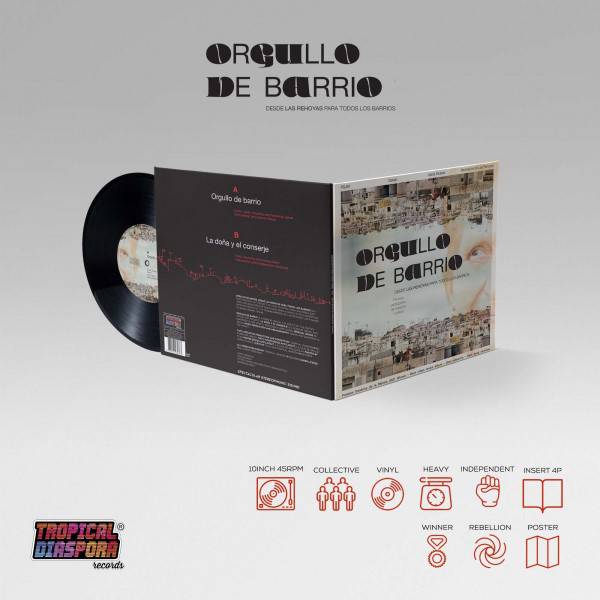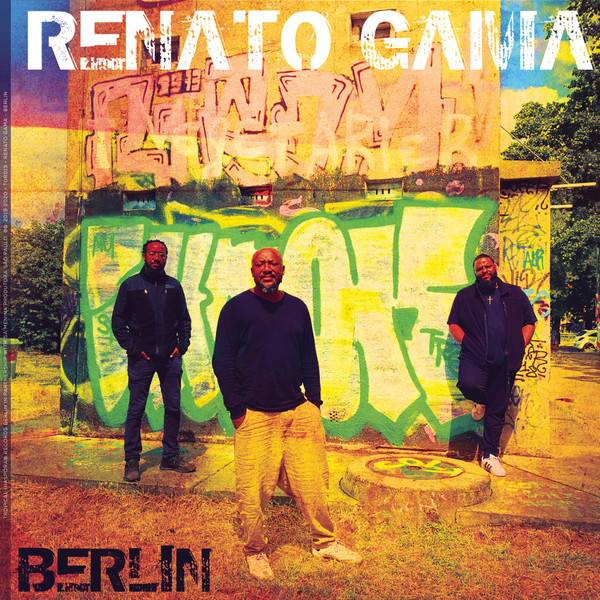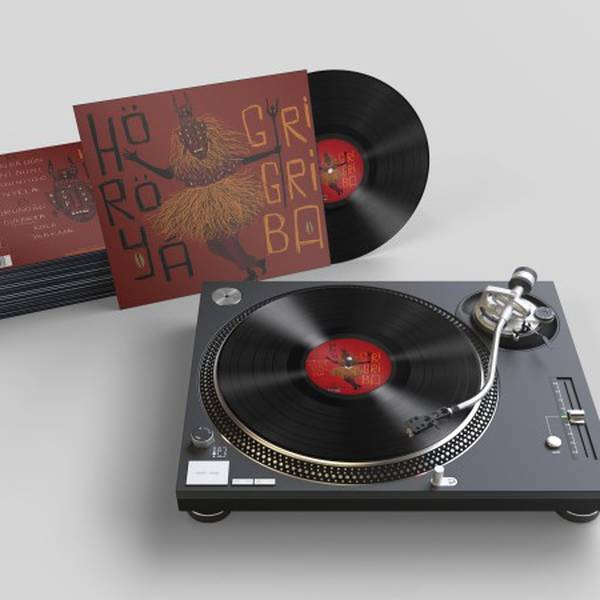
Tax included, Shipping not included
Tropical Diaspora® Records presents:
Alberto Gekah’s “Orgullo de barrio” – hip hop from Canary Islands. The result of a collaborative project after an original idea of PSJM with Asiria Álvarez and the participation of the people of the neighbourhood of Las Rehoyas in Las Palmas de Gran Canarias.
Canary Islands is a place in conflict of identities. Geographically located in Africa it has a history of conquest, colonization and Spanish rule that goes back to the fifteenth century. This history has been erased by the colonial authorities or internalized as somehow inevitable to the point that not much is known today about the original people inhabiting the islands, presumably related to the Berbers. At the time of the Spanish Empire the islands were used as stop-over for the galleons on their way to rampage the Americas, their people, and resources. The Canaries have today a Spanish and European identity, although is too far to be Europe or Spain. The different islands are now confronted with their own past as they serve as a gateway to Europe for thousands of poor and desperate Africans, many of whom have found their grave in the depths of the Atlantic Ocean. Several mining projects, mainly offshore, threaten the ecological sustainability of the islands. The fact is that, if not geographically, then politically and economically the Canary Islands have been separated from Africa. The umbilical cord has been artificially cut and restoring it is going to take more than words and wishful thinking. The Canary Islands have become an anomaly or, as European politicians say: an outermost region of the EU, together with Azores or Guadeloupe. A great euphemism to disguise the real historical process of colonization and accumulation.
The story of Gekah’s “Orgullo de barrio” (Neighbourhood Pride) begins with PSJM, an artistic team with Pablo San José and Cynthia Viera as members, whom I met in Berlin few years ago. As an art scholar and philosopher there have been many aspects of PSJM’s work that have caught my attention, and soon we began to work together and collaborate. Remarkable has been our analysis of the most extreme form of capitalist ideology: anarcho-capitalism (ANCAPS), with its yellow and black colour symbolism that we have addressed in video work, photographs, and book form. Many aspects of this ideology have become intrinsically part of the vocabulary of the political right in the Americas and Europe. I have also been a privileged witness and observer of many artistic projects carried out by PSJM in different parts of the world, works that have fascinated, and still fascinate me. By the time PSJM went back to live on the island of Gran Canaria, I became involved in Tropical Diaspora® Records thanks to DJ Garrincha. I followed the artistic practice PSJM were developing in line with the social movements that were gaining momentum in Spain at the time. In the city of Las Palmas de Gran Canaria, Cynthia and Pablo were getting involved in participatory art projects with actions and performances in several neighbourhoods. These projects turn inside out the traditional understanding of the artistic practice. The whole relations of the system of art are revolutionised as the process of artistic creation requires the participation of the people who are considered not just co-participants but also co-producers of the work of art. This methodology of work not only transforms the art and the people involved in it; it also transforms the artists themselves.
These experiments in collective participation, collective decision making, and grassroots democracy have been developed in several marginalised and poor neighbourhoods of Las Palmas de Gran Canaria. When I heard about the project that took place in Las Rehoyas resulting in the song of Alberto Gekah and the video clip of Asiria Álvarez, “Orgullo de barrio”, I immediately wrote Pablo and Cynthia and offered them to release the song on a vinyl record that should be a further step in the participatory process, a sort of crowning of the whole process in the form of a luxury ware. It took me a few minutes to realise that the song composed by Gekah wasn’t just a hit, something obvious; it was an anthem of the people for the people. Gekah puts into lyrics the sentiments of the people inhabiting many suburbs and peripheries around the world. In fact, the people themselves are speaking. Spivak’s original question Can the Subaltern Speak? is answered with a resounding yes; although the stories told are not always pleasant. The recording of “Orgullo de barrio” means the coming together of several talents: the original idea of PSJM concerned with a process characterised by basis democracy, the lyrics of the urban poet Alberto Gekah, and the superb visual work of Asiria Álvarez, an extraordinary visual artist. But all these are nothing without the people of the neighbourhood themselves, their social imagination and creativity. They are the real producers of the song.
Side A • Orgullo De Barrio
Lyrics, vocals, recording and mastering: Gekah
Instrumental: Anno Domini Nation
Side B • La Doña Y El Conserje
Lyrics, recording and mixing: Gekah
Instrumental and arrangements: Ghenprod
Details
Genre
Release Date
22.05.2024
Cat No
TDR021
Produkt- und Herstellerinformationen



